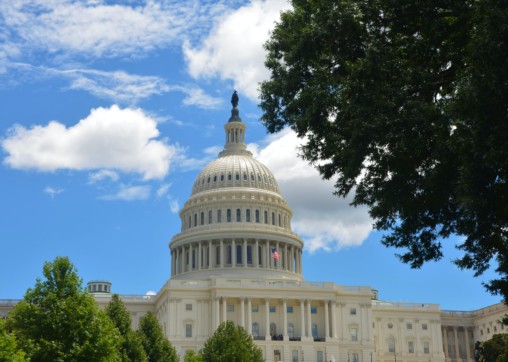Looking into the Crystal Ball: Public Policy and Foundations in 2021

It is 2021, a new year, a new Congress, and a new administration. As we look forward to a world with less COVID-19, more vaccinations, and just maybe a return to a more normal day to day, I wanted to take a few moments to jot down some thoughts on what 2021 means for foundations in terms of public policy.
Before we dive in, I want to thank you for all that you are doing for your communities and the wider world during this very difficult time. The work you do to build stronger communities is critically important to the very fabric of this country and to the world.
As I mentioned above, we have a new Congress and a new administration. Although priorities will shift given the new administration and slim majorities for the Democrats in the House and Senate, first and foremost the priority for both ends of Pennsylvania Avenue is COVID-19. From vaccine distribution, to mitigating the spread, to providing relief to suffering individuals and communities, COVID-19 will be the focus through at least the middle of March and most likely into the Spring and Summer. All eyes will be on Congress as they work to prepare another rescue package for passage over the next month. We will be keeping an eye on their work for provisions that impact social good organizations.
What might we see next? Here are three key policy areas we will be watching.
Reforming Foundations and Donor Advised Funds
Many of us have heard the calls over the last few months for foundations and donor advised funds to distribute more grants to their nonprofit partners to assist organizations and those in need during these difficult times. Some of these calls were even heard pre-pandemic.
Proposals championed by the Initiative to Accelerate Charitable Giving focus on getting grant funding into the hands of partner organizations sooner rather later. Some focus on tax incentives and changes to encourage foundations, donor advised funds, and individual donors to contribute more to the work nonprofit organizations are doing in our communities. Some focus on increasing payout rates, voluntary or mandatory, permanent or temporary, to achieve this goal.
We may see more discussion of these types of provisions among lawmakers and the administration in 2021.
Tax Changes
During the 2020 Presidential campaign, then candidate Biden proposed changing various aspects of the Tax Cuts and Jobs Act, also known as Tax Reform, which was enacted in December 2017. These changes include rolling back individual tax rates for some taxpayers to pre-Tax Reform levels, increasing the corporate tax rate to 28%, capping itemized deductions at 28%, and increasing the tax rate on estate taxes and decreasing the amount exempted from the estate tax.
It is possible that the administration and Congress will turn its attention to tax legislation once they feel the country is putting COVID-19 behind us. If they do take up tax legislation, this would be an appropriate vehicle to also include foundation and donor advised fund reforms as well as making permanent the universal charitable deduction, which enables no itemizers to deduct charitable contributions. The universal charitable deduction has been extended through December 31, 2021 and donations to DAFs and private foundations are excluded from this deduction.
Rules for Donor Advised Fund and the IRS
There is a good deal of speculation that the IRS is working on new rules for donor advised funds. Should the IRS release new rules, there will be a comment period before the proposed rules are final. We currently do not have information on what these proposed rule changes might include, but we will be watching for their release.
Possible rule changes from the IRS provides us with a reminder that while we focus a lot of our attention on Congress, federal agencies with rulemaking authority are also in a position to impact social good organizations and their day-to-day operations.
We will do our best to bring you valuable updates on these policy areas as the conversation evolves.
